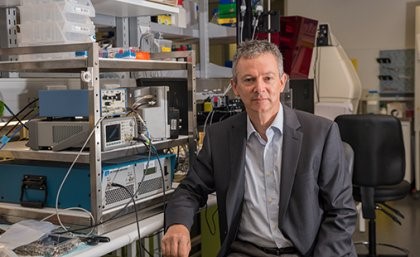 In a recent press release, the University of Queensland (Brisbane, Australia) announced that it had received $10 million in new funding from the Federal Minister for Health for a focused ultrasound project led by Professor Jürgen Götz, Director of its Queensland Brain Institute’s (QBI’s) Clem Jones Centre for Ageing Dementia Research (CJCADR). As part of the Centre’s comprehensive research program that seeks to discover solutions for various aspects of dementia, the investment is earmarked to launch a phase 1 clinical safety trial to treat approximately 10 patients with Alzheimer’s disease via opening the blood-brain barrier (BBB) with focused ultrasound and microbubbles.
In a recent press release, the University of Queensland (Brisbane, Australia) announced that it had received $10 million in new funding from the Federal Minister for Health for a focused ultrasound project led by Professor Jürgen Götz, Director of its Queensland Brain Institute’s (QBI’s) Clem Jones Centre for Ageing Dementia Research (CJCADR). As part of the Centre’s comprehensive research program that seeks to discover solutions for various aspects of dementia, the investment is earmarked to launch a phase 1 clinical safety trial to treat approximately 10 patients with Alzheimer’s disease via opening the blood-brain barrier (BBB) with focused ultrasound and microbubbles.
The safety and efficacy study, which will be performed using a novel system designed at QBI, is slated to begin by the end of 2019. “Not only are we seeking cures for neurodegenerative disorders such as Alzheimer’s and dementia, an activity driven by basic research,” said Dr. Götz, “but our group is also pursuing ways to diagnose and interfere with these diseases earlier through the work of our many research groups and laboratories.” Indeed, CJCADR has grown to a team of more than 90 researchers, whose work will now be supported for the next five years.
Building on laboratory studies that began more than 20 years ago, Dr. Götz and his team have completed and published a vast array of preclinical studies to understand pathological mechanisms in Alzheimer’s disease. More recently, they succeeded in temporarily opening the BBB, removing toxic plaques from the brain, successfully reversing the symptoms of Alzheimer’s, and even restoring memory function in the animal models that they developed specifically for dementia research. Now his group is in the final stages of testing the focused ultrasound system that they plan to use for the human treatments. Once testing is complete, the team will finalize and seek approval for the clinical protocol before it can recruit patients for the safety study.
The QBI website has created an informational page for Australian patients who might be interested in this study.
According to its announcement, the University of Queensland prioritized dementia research in its $500 million “Not if, when” philanthropic campaign, which began in late 2017. Besides the Federal and State Government investment, the group has ongoing funding from the Clem Jones Foundation and received additional donations from the Brazil Family Foundation, The McCusker Charitable Foundation, and the Yulgilbar Foundation as part of the campaign.
A QBI video (at right) shows how focused ultrasound and microbubbles open the BBB and clear the plaques that are associated with Alzheimer’s disease.
This major milestone has gained media attention from the following outlets:
9News Australia, ABC News Australia, The Daily Telegraph, Medical Device Network, Starts At 60, and Xinhua.
